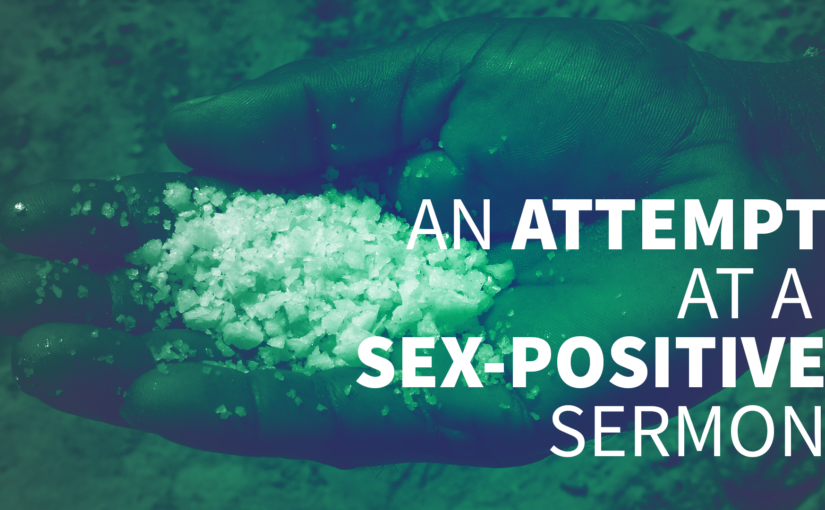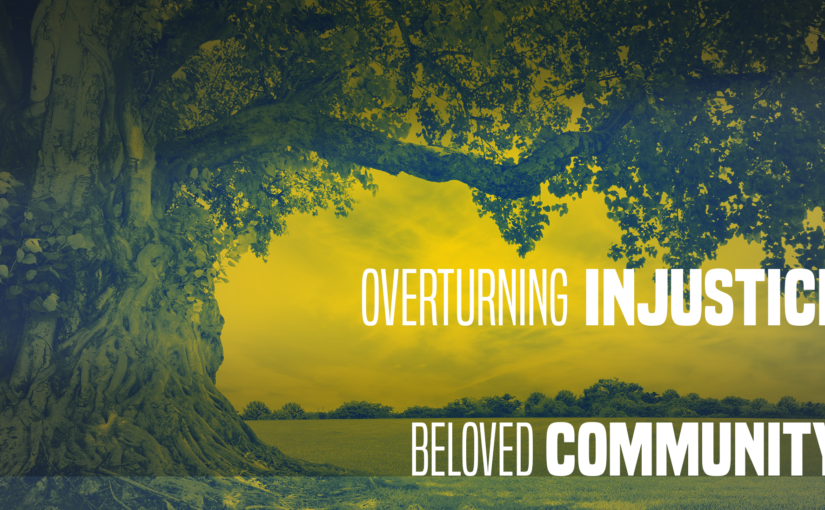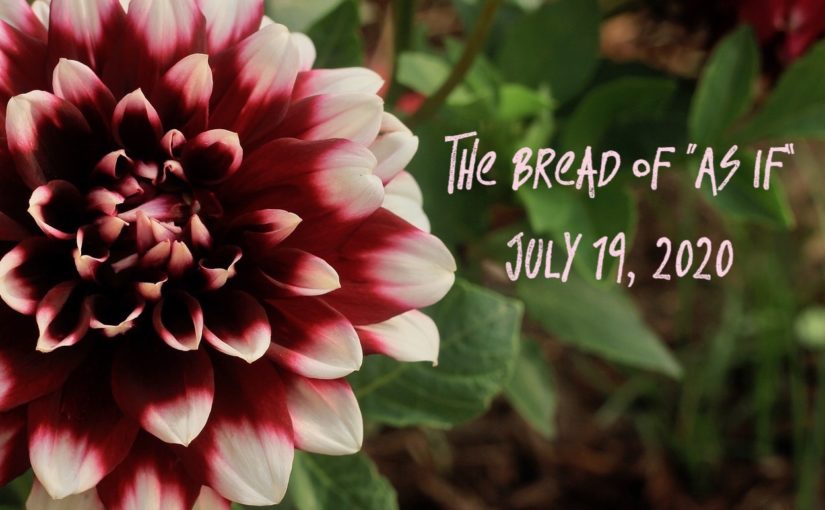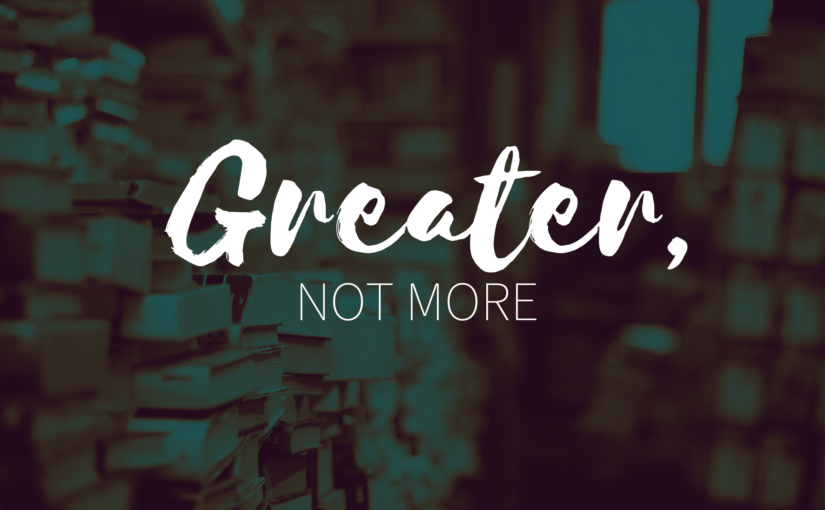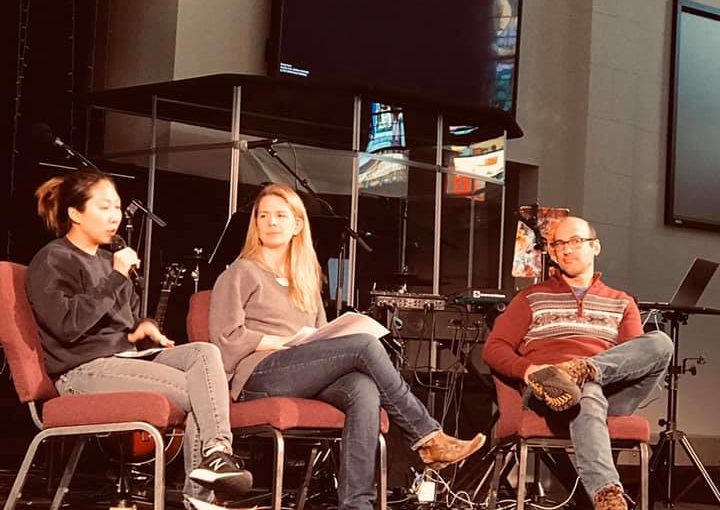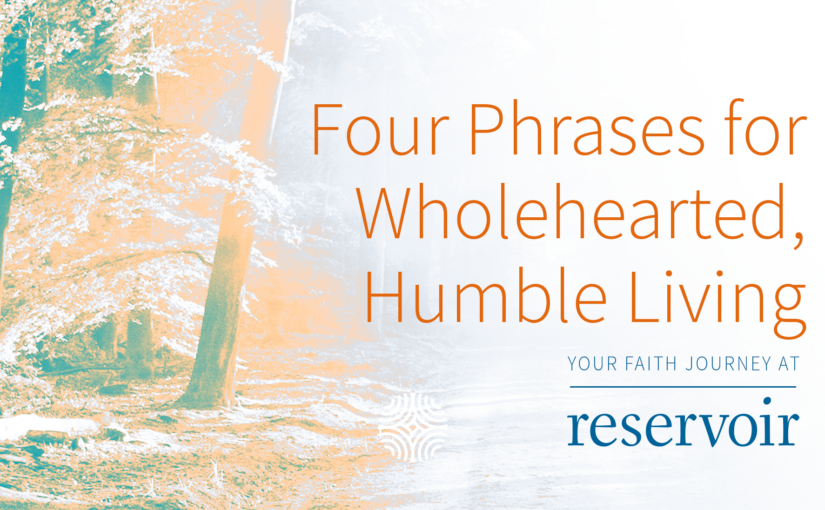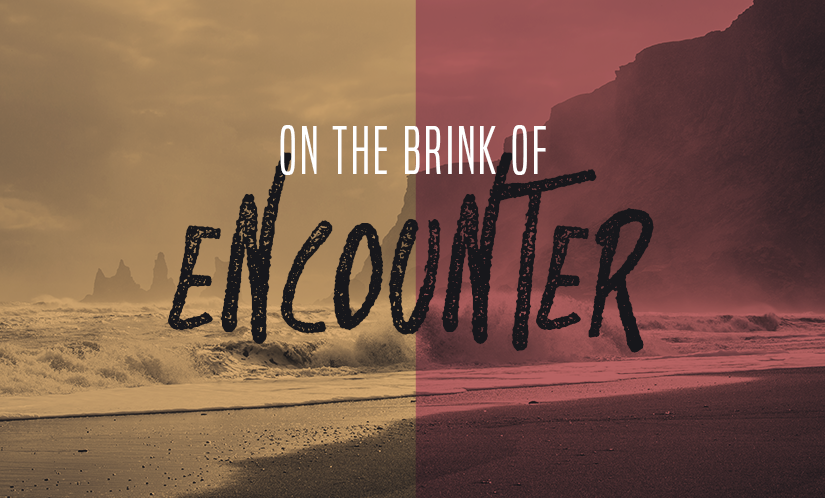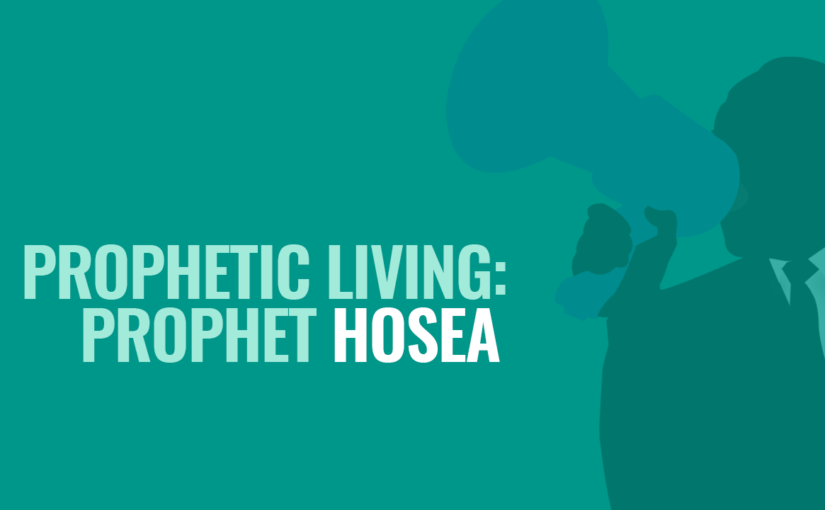For this week’s Events and Happenings, click “Download PDF.”
For this week’s Spiritual Practice “For the Sake of Old Times” led by Ivy Anthony, click HERE.
Hi everyone, happy January and happy New Year. I’m Cate, I’m on staff here at Reservoir Church. Look at us! We have made it — to a New Year. We are alive. A daily miracle, and a particular miracle in a year of visible and invisible death. God, how we give thanks that we are here today, together.
Today is the last day of our Christmas season at Reservoir (Western church calendar “Christmas” ends with the arrival of the Magi, a day called Epiphany, on January 5). We have called our Advent and Christmas season “Let Every Heart Prepare Him Room.” In many ways, I can’t think of a better way to enter into a New Year than by preparing our hearts room for Jesus — for all he is, for the ways he longs to be with us — to receive his presence, his nearness, his love, his liberation, his commitment to making the wrong things right. We prepare our hearts room, in a new year — to receive of Jesus.
As we stand here at the brink of a new year, I have wavered between “What is the point of celebrating a new year? Won’t this pandemic winter be more of the hard, harsh same?” and, on the other hand, flickers of what Ivy mentioned, the temptation to put 2020 in the shade.
But I wonder if, like the choir we just heard, like the space we just reflected on, if the praying, prophetic ones we are about to meet, Anna and Simeon, in their watching and waiting, might help us into a better way of welcoming something new, something long-awaited.
At the tail end of the story of Jesus’ birth in the gospel of Luke chapter two, Jesus’ parents Mary and Joseph take the baby Jesus to be presented in the temple following the Jewish custom of the day. There the author introduces us to Anna and Simeon who encounter the baby in the temple.
Luke 2:22, 25-32, 36-38
22 When the time came for their purification according to the law of Moses, they brought Jesus up to Jerusalem to present him to the Lord.
25 Now there was a man in Jerusalem whose name was Simeon; this man was righteous and devout, looking forward to the consolation of Israel, and the Holy Spirit rested on him. 26 It had been revealed to him by the Holy Spirit that he would not see death before he had seen the Lord’s Messiah. 27 Guided by the Spirit, Simeon came into the temple; and when the parents brought in the child Jesus, to do for him what was customary under the law, 28 Simeon took him in his arms and praised God, saying,
29 “Lord, now you are dismissing your servant in peace,
according to your word;
30 for my eyes have seen your salvation,
31 which you have prepared in the presence of all peoples,
32 a light for revelation to the Gentiles
and for glory to your people Israel.”
36 There was also a prophet, Anna the daughter of Phanuel, of the tribe of Asher. She was of a great age, having lived with her husband seven years after her marriage, then as a widow to the age of eighty-four. She never left the temple but worshiped there with fasting and prayer night and day. 38 At that moment [that Jesus was in the temple] she came, and began to praise God and to speak about the child, to all who were looking for the redemption of Jerusalem.
Let me pray for us:
Jesus, our consolation, our hope, and long-awaited redemption, we give thanks for your presence birthed anew in us, in our world. We thank you for the way you come near to us, to the very places of our hearts and our lives. We welcome you this new year, as you welcome us. Amen.
anna & simeon: watching and waiting in resistance and hope
Anna and Simeon have been waiting for no small thing. They have been waiting for something big: the consolation of Israel, the redemption of Jerusalem. Israel was under the occupation of the Roman Empire, and these two in the temple had been waiting, watching, and praying for deliverance. This was a radical hope, a hope of resistance and rebellion from the mighty weight of the oppression of empire. The scripture says that the Holy Spirit rested on Simeon, and I wonder if where hope is big and at times dangerous, as our bodies and lives push against systems and structures of power and oppression, that we need the strength, the rest, and the sustaining presence of the Spirit with us.
I’m also drawn to Anna and Simeon as elder characters in the story of Jesus’ birth. The text says that Anna is 84, and even though Simeon’s age is not named, much of Christian tradition holds him as an older man too. I’ve been thinking about the quiet hope and steadiness of elders, who have known enough of life to know that sometimes we just keep keeping on, holding on to prayer and hope in a faithful God, in the cycles of the seasons, in the generational work, where nothing is final and we are not alone.
I’ll say something more about elders here, before we come back to Anna and Simeon. On my mind are the elders for whom pandemic life has been terribly hard: the isolation, the fear, the physical, social, and emotional vulnerability. I have missed the presence of elders in my life this past year, as physical distance has been the safest option, but it has also meant absence. I think of my grandfather’s steady rituals, even as his mind fades, of meals and walks and phone calls and naps. His own waiting for consolation, for redemption, for the long-awaited Jesus. I think of the elders who have weathered these days with strength, carrying what one writer calls “crisis competence,” formed by a lifetime of responding to the social and personal trials of life. And then I think of the chaos I have seen other elders caught in, as their lives have been disrupted and unmoored and their anxiety and desolation have at the surface. I think of just how many elders we have lost in the chaos of COVID, the ones who died alone, the ones who were afraid. I ache for the loss of the older generation to our world, to our nation, and how with a different response they might have been spared.
Let us take a moment to remember our elders, the ones in our midst and the ones we have lost.
I’ll come back now to Anna and Simeon and a few thoughts about hope, prayer, watching, and waiting. I’ll name a frustration with this passage up front. Anna and Simeon are both idealized characters in their holiness and devotion (the author of Luke loves idealized pairs). Simeon is “righteous and devout,” and Anna has been the model widow who, for decades, has been worshiping in the temple. Okay, okay, these holy ideas are lovely, don’t particularly capture how I experience life. I want to know the grittiness of their lives, their deep joys and their angst. I want to know about the days they didn’t want to go to the temple, or the years and the decades where they wondered if they would ever be free from the oppressions of empire and patriarchy. I want to know about their humanness, and not just their holiness.
And yet in these two, we see something of what it is to live with long-awaited hope — and hope for something big, like redemption, like salvation. Despite all the odds, they have held a quiet, steady hope. They have been active in their watching and waiting; their prayer is no passive pastime. And then they catch a glimpse of things, of the thing, of the one they have been waiting for. The great Messiah, their liberator, their deliverer. It is not him in his fullness, but it is enough to recognize. The baby, the child, the evidence of things hoped for, the substance of things unseen. And yet it is in process — he is only a baby. They are old and will not see what his life will come to. Their hope is touched, and yet it is still in process.
Anna is called a prophet. I am frustrated too that the text does not let us hear her voice, but I imagine her song of recognition at the sight of Jesus — of the praises she rings and sings to all who hear, of her prophetic witness to the one who has come to make people free. The youngest of our Reservoir community say this about the prophets during Advent in Kids Church: “Prophets are people who come so close to God, and God comes so close to them, that they know what is most important. The prophets point the way to Jesus. They say: Stop. Watch. Pay attention. Something incredible is going to happen.”
Stop. Watch. Pay attention. Anna has been watching her whole life, and her prophetic gesture is to point to the Messiah who has come. This tiny Christ Child. In process. A glimpse of her long awaited hope.
watch night, freedom, prayer
Stop. Watch. Pay attention. This spiritual practice of watching is part of the tradition of Watch Night. Watch Night is a prayer service held on New Year’s Eve, where communities gather to remember and give thanks for the year that has happened, and pray, sing, and worship as the new year comes in — to thank God for getting us this far and asking God to carry us still. Its historic roots cross a number of denominations, but it has a particularly potent expression in the Black church in the United States, in its connection to a historic night of watching and waiting.
On September 22, 1862, President Abraham Lincoln issued the Emancipation Proclamation, declaring that three months later on January 1, 1863, enslaved people in the rebellion states “shall be then, thenceforward, and forever free.” On New Years Eve, the last night of 1862, Black folks — free and enslaved — gathered in churches, homes, and slave quarters, praying and singing, watching and waiting for the Proclamation to go into effect. A Watch Night of looking toward the consolation and redemption of their bodies, their freedom, their lives from the chains and chattel of a racist empire and the oppression of slavery. This Watch Night was a hope of resistance. It was a radical, dangerous hope. The ones who were enslaved were not yet free. There were laws, codes, and restrictions about gathering. Who was watching the door? What courage was it to lean into this hope that maybe, at last, this long awaited, sung for, prayed for, pleaded for hope of freedom might be coming close? What power of the Holy Spirit was needed to hold such a long and mighty hope, that had passed from one generation to the next?
As it goes in this country, the proclamation did not mean immediate freedom for enslaved people. It was contingent on the Union army actually advancing into the rebellion states and enforcing the proclamation. It would be another three years until the ratification of the Thirteenth Amendment that abolished slavery (though even in there, there were exceptions baked in), and it would still be and still is the daily struggle and fight for social, political, economic, health, and housing equality and reparation that continues to be our work this day.
I had an opportunity to join a virtual Watch Night service this New Years Eve, I was struck that the spirals, gradations, and continuums of freedom and hope lure us to a place of prayer. To give thanks for something as big as making it through a year, to hold before God and others the long-held, the long awaited desires of communities and generations — there are some things too big to hold on our own, and in those places, prayer becomes an articulation of our longings, and a place to conspire with God and community for what we can do together. The Rev. Carrington Moore, a pastor at Bethel AME Church in Boston, who will be joining us here on Virch later this month, talks about the way that prayer re-members and re-calls us to God. I am struck that prayer re-members us to the God who makes a way out of no way. I think of Anna’s prayers, Simeon’s prayers, Watch Night prayers through the ages and three nights ago — that these prayers for consolation, for redemption, for liberation, for salvation are a powerful resistance, a powerful hope.
Here at the start of a new year, where it might just be that we are hoping for so much, or wondering how to hold our discouraged hopes: what if prayer is part of our active watching and waiting? Prayer for things to be made new, for long-held hopes that are in process, where we’ve maybe gotten a glimpse or maybe there was no glimpse but there is so much more we long to see. Prayer that, as we heard last week, conspires with God’s imagination and ours. Or prayer that is simple as our breath, a groan, or a word. Mercy. Help. Jesus. Thank You. Prayer that steadies our hopes, steadies our hearts.
A couple days ago, I remembered that my favorite prayer of 2020 has been lying on the floor. I get on by back and I remember that I held on steady ground, even on my least steady days. In the movement of Christmas I hadn’t laid on my back in a while, and over the last few days, I have been coming back to this place of prayer. It doesn’t even have words — but it is a way to re-member to myself, to God, to the support all around, and to the longings within and around.
hope
I’ll confess, in all this hope talk, there are parts of 2020 I look back on and it seems like any hope I had is under a heaping pile of dirt. So I want to say something to any of you who feel like your hopes may seem buried, dashed, broken, lost in a pile of disappointment, despair or shame. I imagine Jesus’ tenderness in these words from Isaiah 42:3 — A bruised reed he will not break, and a smoldering wick he will not snuff out. In faithfulness he will bring forth justice. God would you bless all that is hurting, tender, and in need of healing and justice.
I picture, too, those who are carrying hope into this new year, like a tiny shoot coming up from the dirt, or a plant that is growing, or maybe like one that is thriving. I think of the Spirit within us and among us, the gardener of our souls and our world who keeps at the holy work of love, beckoning us into the holy work of tending to the gardens we have chosen, the gardens entrusted to us, the gardens of our communities and the work of generations. Holy One, bless all that is that you and we are conspiring to grow in us, in our world.
And through it all, I take heart that Jesus is steady in his hope. And where we are steady and where are not, we can lean on his strength and his tenderness in our weakness. Jesus is here to strengthen us, by the Spirit, in our watching and our waiting. That long-awaited baby is our Emmanuel, and he is glad to be with us in all things.
Let me pray for us… Oh Jesus, we prepare our hearts room to receive your presence, to receive your companioning, to be strengthened in hope by your love, trusting that you will see us through this New Year ahead, come all that will. Amen.
Benediction
The poet Lucille Clifton writes:
nothing so certain as justice.
nothing so certain as time.
nothing so patient as truth.
nothing so faithful as now.
february 11, 1990
for Nelson Mendela and Winnie.
nothing so certain as justice.
nothing so certain as time.
so he would wait seven days, or years
or twenty-seven even,
firm in his certainty.
nothing so patient as truth.
nothing so faithful as now.
walk out old chief, old husband,
enter again your own wife.
–Lucille Clifton



